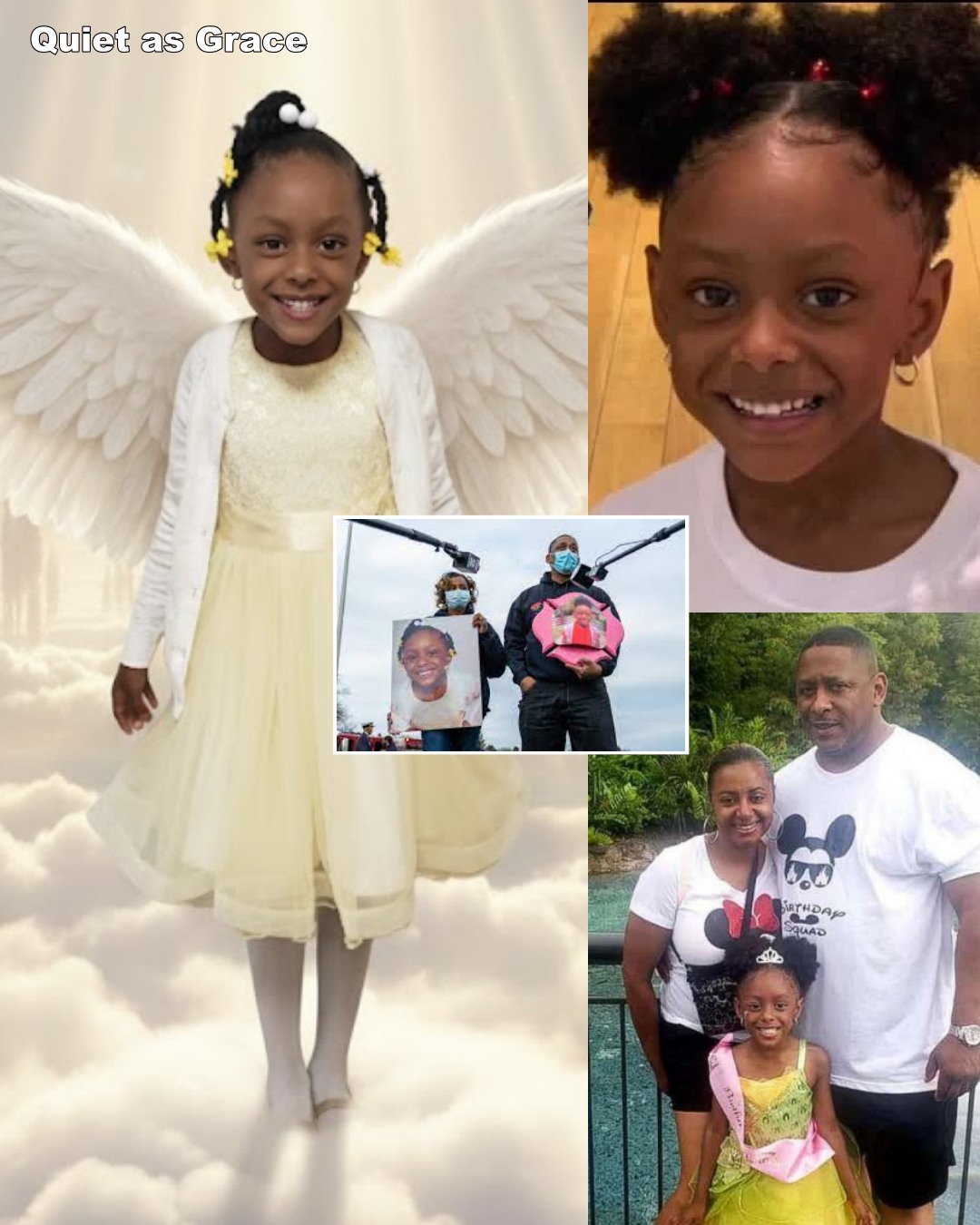Skylar Herbert was only five years old when her world changed in ways no child should ever face.
A month ago, she complained to her parents that she had a bad headache.
At first, it seemed like a simple ailment.
Her parents, Ebbie and LaVondria Herbert, thought it might be a stubborn migraine or maybe just a passing virus.
They tried pain medicine, hoping that the discomfort would ease with rest.
But the headache persisted.

Night after night, Skylar cried, unable to find relief.
On March 23, her parents brought her to the pediatrician, desperate for answers.
The doctor diagnosed her with strep throat and prescribed antibiotics.
For a moment, the family hoped this would be the end of their worry.
Skylar returned home, still fragile but showing a hint of hope.
However, her pain would not relent.
Her parents called the doctor again, voicing their concern.

They were told to wait, that the medication needed time to work.
But Skylar’s cries pierced the night, and LaVondria knew they could not wait any longer.
She and her husband rushed Skylar to Beaumont Royal Oak.
The doctors ran tests, including one for COVID-19.
The next day, the results came back positive.
Skylar had contracted the virus, though her symptoms were unusual.
The headache and mild fever were attributed to COVID-19, but what no one anticipated was the rare and devastating complication that would follow.

Skylar seemed to improve briefly.
She no longer complained about her head, and she could even get up to use the bathroom on her own.
Her parents dared to hope.
But the reprieve was short-lived.
Soon, Skylar relapsed.
She became drowsy and incoherent, drifting in and out of sleep.
The doctors acted quickly.
A small hole was made in her frontal lobe to relieve the swelling and drain excess fluid.

The next day, Skylar was placed on a ventilator.
Her condition deteriorated rapidly.
Meningoencephalitis, a rare and dangerous inflammation of the brain and its surrounding tissues, had set in.
A lesion had formed on her frontal lobe, causing swelling that compressed vital areas of her brain.
Her parents watched helplessly as the little girl they loved so fiercely became trapped in a battle beyond her understanding.
Skylar’s story was the first of its kind in Michigan.
She became the youngest person in the state to die from COVID-19, a grim reminder of the virus’s unpredictable nature.

Her parents clung to each other, unable to comprehend how a virus that had seemed so far away could claim their daughter.
The doctors and nurses at Beaumont Royal Oak did everything possible.
They monitored her around the clock, adjusted medications, and performed delicate procedures to relieve pressure in her brain.
Every beep of the monitor, every sigh of relief, and every small movement was a moment of hope.
But hope alone was not enough.
After two weeks on a ventilator, Skylar’s condition stopped improving.
The doctors spoke to her parents gently, explaining that she may be brain dead.

LaVondria Herbert, heartbroken, made the unbearable decision to remove her daughter from the ventilator.
Skylar slipped away quietly on a Sunday, leaving a void that no words could fill.
The grief that followed was immense.
Ebbie and LaVondria held each other, tears streaming down their faces, as they tried to grasp the reality that their daughter, their bright, vibrant little girl, was gone.
A statement from Beaumont Health acknowledged the tragedy: the loss of a child, at any time, under any circumstances, is a heart-wrenching event.
Skylar’s death served as a stark reminder of the unpredictable and devastating effects of COVID-19, even on the youngest and seemingly healthiest among us.

Her story resonated across Michigan and beyond, highlighting rare complications such as acute necrotizing encephalitis, which had been observed in very few COVID-19 patients worldwide.
Skylar’s parents spoke about their daughter’s courage in the face of pain and uncertainty.
“She never stopped fighting,” LaVondria said, her voice trembling.
Every smile, every small step forward, and every fleeting moment of improvement was a testament to Skylar’s resilience.
Yet, the virus had been cruelly relentless.
Her death sparked awareness and conversations among medical professionals and families alike, emphasizing vigilance for rare COVID-19 complications in children.

Skylar’s memory became a catalyst for advocacy, pushing hospitals and caregivers to monitor pediatric patients more closely and act quickly when symptoms escalate.
In the quiet of their home, the Herbert family mourned not only the loss of their child but also the innocence and joy she carried with her wherever she went.
Skylar’s room remained untouched, a sanctuary of memories, stuffed animals, and drawings that captured her brief but beautiful life.
Every night, her parents whispered her name, holding onto the love that would never fade, and trying to find solace in the legacy of courage she left behind.

Though her life was brief, Skylar’s story became a reminder to the world of the fragility of life, the unpredictability of disease, and the immeasurable strength of a family’s love.
Her laughter, her curiosity, and her unwavering spirit would live on in the hearts of those who loved her.
Skylar Herbert was five years old, but her story left an imprint far greater than her years.
She became a symbol of awareness, of vigilance, and of the deep human connection that persists even in the face of unimaginable loss.
Her life, though tragically short, touched countless hearts and reminded everyone of the preciousness of every single day.
Skylar’s fight may have ended, but the lessons, love, and memories she left behind continue to echo, guiding families, doctors, and communities to hold their children a little closer and cherish each fleeting moment.




